
by Emily Goodwin and Sarah Brophy
Video calls. Collaborative docs. Memes. “Live” concerts. Vaccine selfies. Netflix. Case rate data.
Digital media provided lifelines during the COVID-19 global public health crisis. Yet as everyday life became more screen-centric than ever, the friability of online communication made itself felt in every dropped conversation, system glitch, or frozen screen. And though so many digital technologies promise synchronicity and connection, there is no one pandemic time.
According to Nadine Chan, the force of the pandemic’s “rush” to digital technologies is a fracturing, “distal” one. The devices that seem to connect us also drive us apart, into divergent “digital lifeworlds” that, as Chan puts it, “exacerbate[] the ongoing crisis of capitalism by parcelling out who must suffer in real time and who lives in virtual time.” An eerie philosophical and political question surfaces: in the aftermath of COVID’s intensification of digital media habits and of disenfranchisement, do we face a bleak future of increasing disconnection?
Stranded, Together
Dissatisfied with the preference for synchronous forms of digital communication (commonly valued as the next best thing to “in person” gatherings), we set out to explore “mediated intimacy” differently. We looked at first-person essays and films from 2020-21, encountered in our own networks, that foregrounded the asynchronous circuits of digital media and the dis/connections of lockdown. What fleeting bonds, or “affective encounters,” could we glimpse within projects born within out-of-sync “digital lifeworlds”?
A photo-essay by Ella Comberg arrived in our inboxes as part of an email newsletter; Comberg’s careful engagement with Google Street View images, which she argues capture “the everyday social relations of pandemic life,” draws out unpredictable intimate bonds across time and space.
After watching Bo Burnham’s comedy special Inside at home with our families, we revisited musical numbers like “FaceTime With My Mom (Tonight),” interpreting them as fraught testimonies to the disjunctures, but also necessity, of mediated social ties.
The third case study in our research paper dedicated to these projects, Richard Fung’s short film “[…]” likewise “flickered” with familiarity: we recognised its testimonial techniques from Fung’s body of work on queer and Asian diasporic kinship and HIV/AIDS treatment activism. In “[…],” Fung uses an available device–his iPad–to produce a visual testimony of his experience of being stranded in southeast Morocco while travelling with his partner Tim McCaskell in March 2020.
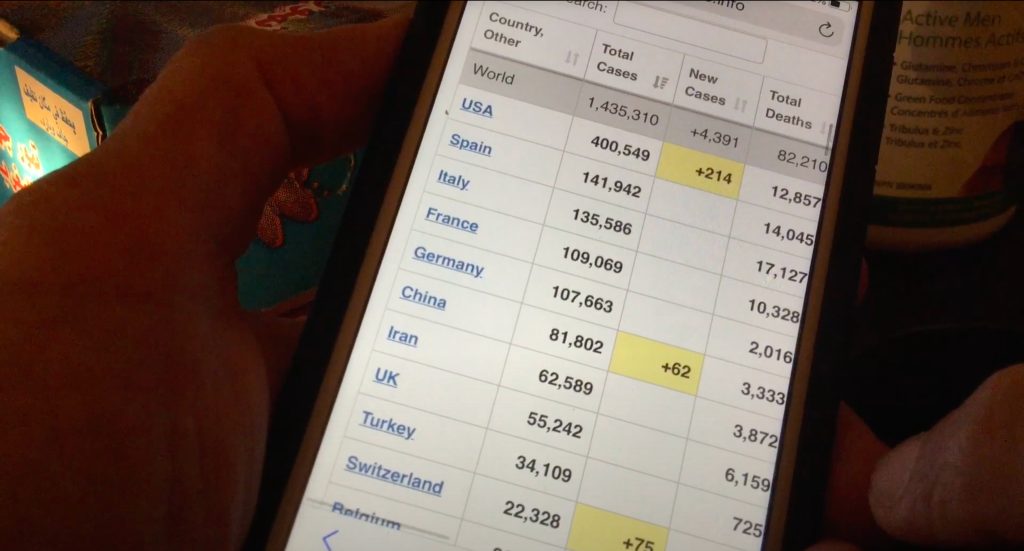
We first encountered Fung’s documentary in 2021 during COVID’s third wave, roughly a year after he recorded it, and immediately felt a resonance with the repeated experience of lockdown. As viewers, we were looped into Fung and McCaskell’s efforts to refresh, scroll, and pinch, hovering over a buffering, blurry touchscreen display of case numbers, news sources, or the French-English translation of the word “indefinitely.”
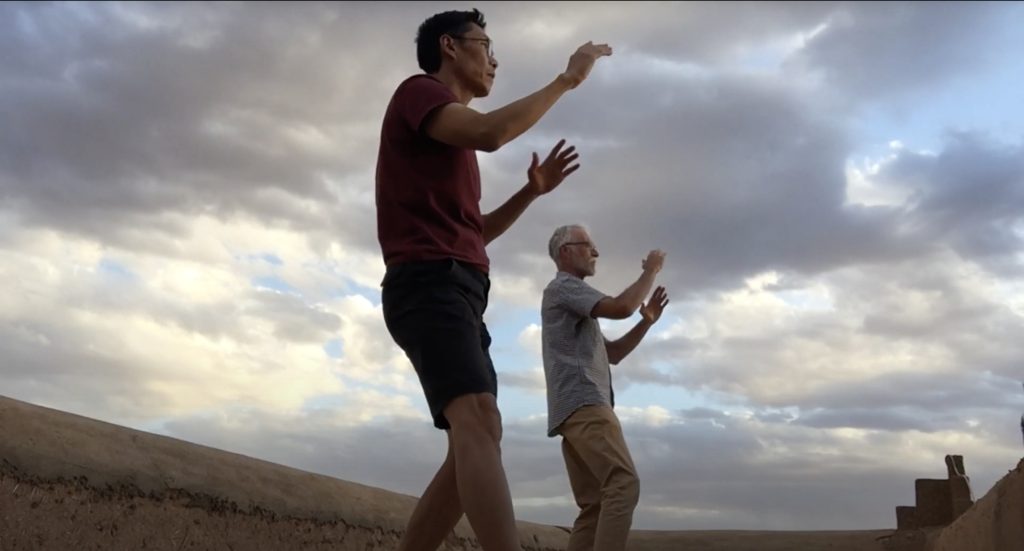
Around minute 2:30, the shots widen to show more of the surrounding landscape, and we see Fung and McCaskell practising tai chi on the riad rooftop. As the pair’s movement practice attunes them to their surroundings, the film ruminates on the work of establishing a new pace within this “indefinite” suspension.
But the film does not present a pastoral fantasy of tech-free existence. In two final, extreme close-ups of their faces, Fung and McCaskell look toward one another—and at us. Their startled expressions convey the horror of repetitive, stranded everydayness, the ongoing need for various strategies (scrolling, moving, filming) for making do.
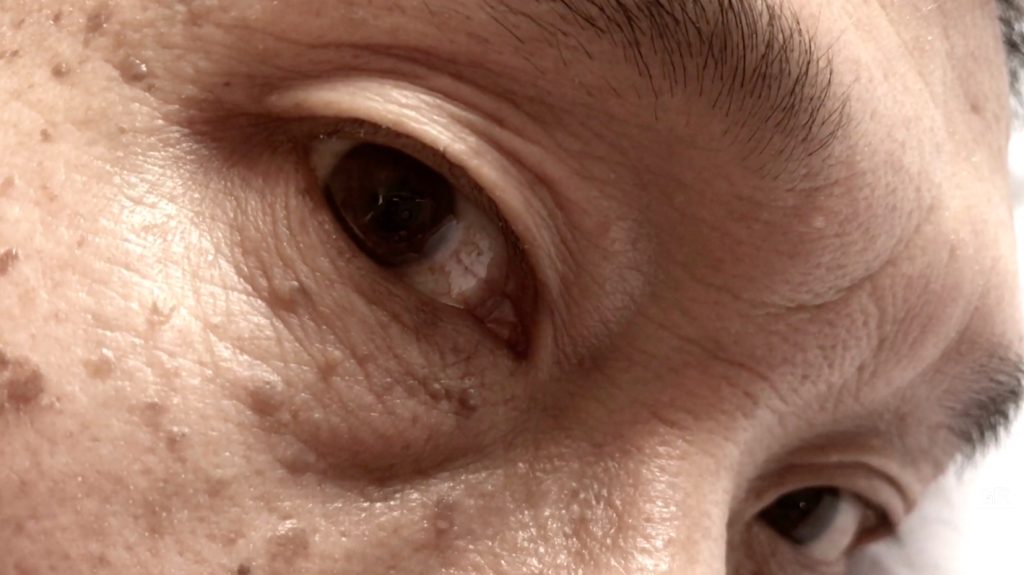
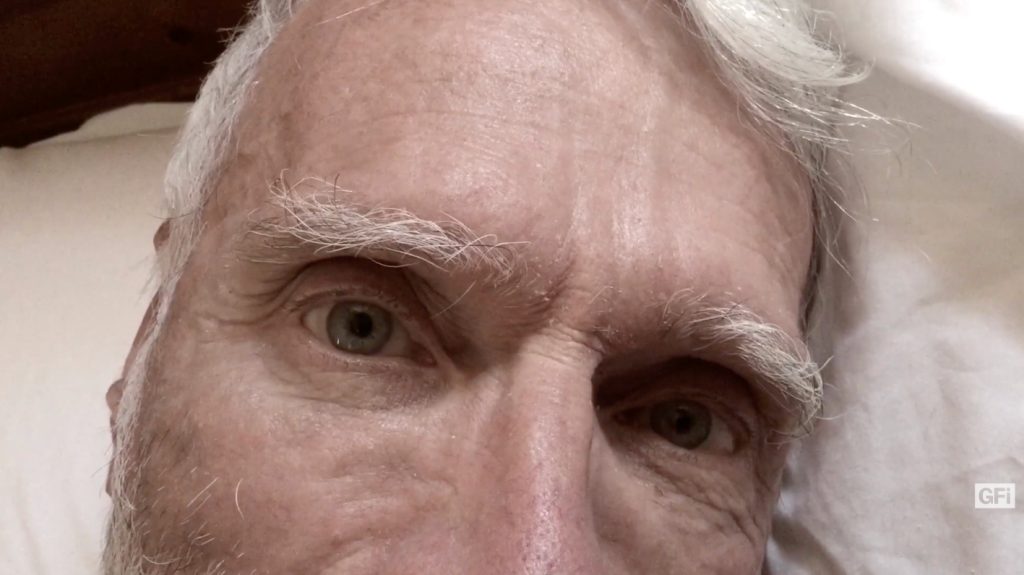
This gesture of mediated intimacy, drawing on creative practices forged through HIV-positive survivorship, suggests the possibilities of companionship in a time of “stuckness.” Richard and Tim are together, documenting, feeling, and navigating the “apocalyptic affects” of another global health crisis.
Uncanny Returns, Companionate Possibilities
We collaborated on the drafting of this blog post while confined indoors once again in June 2023, this time due to an air quality warning in Southwestern Ontario, the result of unprecedented wildfire smoke. For several days, masks became widely worn again in our streets. The uncanny return of such precautions, across borders, underscores that the era of global public health emergencies is not over.
Amid intensifying (and interconnected) health and ecological crises, there is value in revisiting COVID-19’s stories of mediated intimacy. More than passing entertainment, lockdown media can trouble the platitude that we were, or are, ‘all in this together’. Distal bonds undoubtedly unfold, as Ella Comberg notes in her inquiry of Google Street View, “through the filter of capital.” Yet personal testaments to everyday pandemic life can offer critical lessons for how we might reinvent intimate connection–on, in, and through digital technologies.
Banner image photo by Ehimetalor Akhere Unuabona on Unsplash.
About the Authors

Emily Goodwin (vanharee@mcmaster.ca) is a PhD Candidate in the Department of English and Cultural Studies at McMaster University, researching the intersection of everyday digital practices, media materiality, and food popular culture.
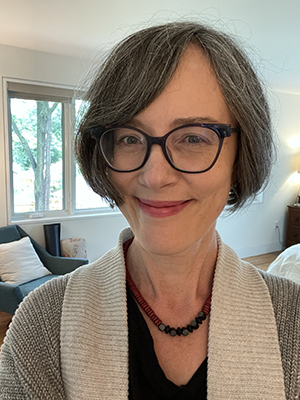
Sarah Brophy (brophys@mcmaster.ca) is Professor of English and Cultural Studies at McMaster University, concentrating on visual self-portraiture, digital labour, race, gender, disability, and health. They live and work in Thorold and Hamilton, Ontario, on the traditional territories of the Mississauga and Haudenosaunee nations, within lands protected by the Dish With One Spoon wampum agreement.
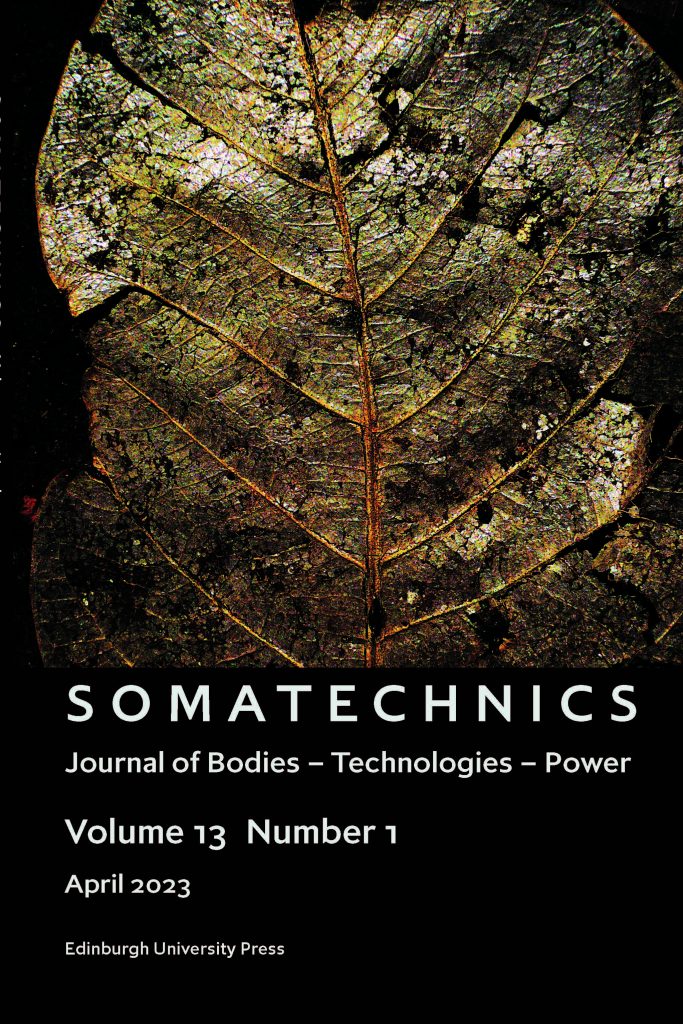
Somatechnics 13.1: Mediating Encounters/Encountering Violence is available now.
Somatechnics: Journal of Bodies – Technologies – Power is a journal that provides a forum for research on all things relating to ‘the body’, critically engaging with the technological, ethical and political implications of a wide range of practices, techniques and academic spaces.
Sign up to our mailing list to keep up to date with our journal, book and event news.





